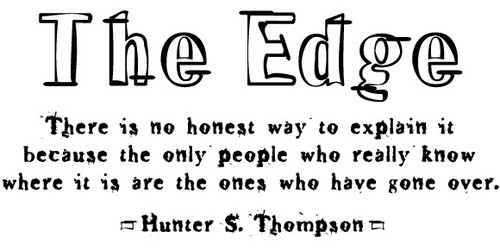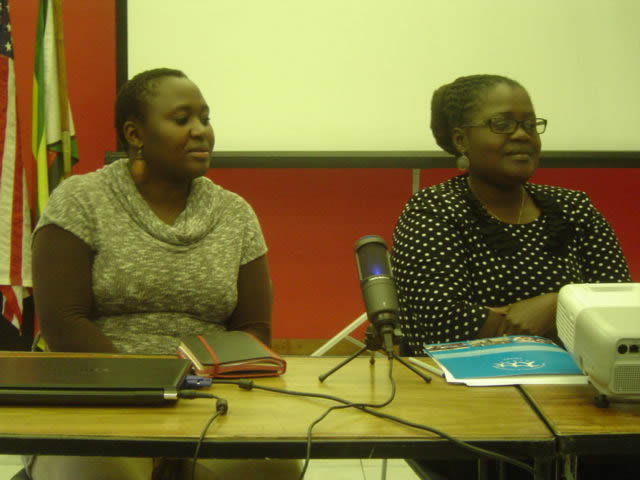Archive for May, 2012
Zimbabwe Republic Police, what are you doing?
Thursday, May 10th, 2012 by Bev ClarkHello to the Zimbabwe Republic Police (TRAFFIC Section) and the Greendale District Office.
There’s this speed trap on Coronation Road in Greendale. The speed limit is 60. There are a couple of very rusted speed limit signs on this road. None the less the limit is 60 and we shouldn’t speed.
BUT, take Kennedy Road and you wonder about the ZRP’s priorities. Kennedy is being used by Kombi drivers as a substitute for Arcturus Road. Why? Because of the potholes and traffic lights and traffic on Arcturus. These three things serve to slow Kombi’s down which is what they don’t want.
So they use Kennedy which is a 2.5km stretch of road that has one non-working traffic light (that’s meant to help school kids from Courtney Selous Junior to cross the road), no speed limit signs, and mostly not potholes.
A ZRP speed trap is most definitely needed on Kennedy where kids walk and cycle to school. Its a suburban road that should need be used as a main thoroughfare.
A Stop sign, not a Give Way sign is most definitely needed at the intersection of Alfred Road and Kennedy where Kombi’s don’t give way (nevermind the ridiculous permanent 6 – on average – policemen and women who fine people for not stopping outside OG’s in Mount Pleasant).
Do the ZRP really want to make a difference in communities, to make them safer, and more hospitable? Or do they just want to position themselves for the easy work and personal benefits?
That’s not journalism
Thursday, May 10th, 2012 by Upenyu Makoni-MuchemwaBeing too tired (and too full) to move last night, I found myself watching last night’s 8 ‘O’ Clock news broadcast on ZBC. For the most part I try to avoid watching the news, it long ago abandoned its analytical, investigative and informational functions, and now merely serves to justify ZANU PFs existing position.
In an in-depth report, the bulletin featured unabashed condemnation, badly disguised as analysis, of the Pretoria High Court Ruling passed on Tuesday obliging South Africa to investigate Zimbabwean torture allegations. It then moved on to discuss the issue of the lack of coin change from retailers, a cold news item that had been publicly discussed last year; and as a coup de grace a feature report on the lack of innovation in the tourism sector. I quite doubt that the programmes producers appreciate the irony of their levelling this charge when they are lacking in innovation themselves. Chris Mutsvangwa ZBC’s newly favourite public intellectual was quoted in at least three stories, in his multiple capacities as a legal expert, economic analyst and government representative. One might assume that he was the only person in all of Zimbabwe with any kind of education or opinion.
There’s an hour of my life that I will never get back. The entire bulletin was poorly constructed and superficial in it’s coverage. Zimbabweans are not stupid, their response has been to access paid and free to air channels from South Africa. It’s no wonder that the Zimbabwe All Media Products Survey has consistently reported a decline in viewership. I wonder how Zimbabwe Broadcasting holdings management can doggedly continue to create programming that few can access and even fewer care to watch. Surely they cannot be so deluded as to call what I witnessed last night journalism? Thankfully ZBC’s reception is limited to an 80km radius around Harare, leaving the rest of the nation unaffected. I can’t say it’s a loss to Zimbabwe’s media-scape.
Zimbabwean gender activists speak out
Thursday, May 10th, 2012 by Elizabeth NyamudaThe difficulties experienced by rural women include water and sanitation challenges. It is therefore with much delight that I note that rural women were the main talk at this year’s United Nations, Commission on the Status of Women (CSW). This is a platform created by the United Nations and is held annually at the UN Headquarters. According to the UN, the Commission on the Status of Women (CSW) is the principal global policy making body dedicated exclusively to gender equality and advancement of women. In this regard, each year member states gather at UN Headquarters to create various platforms to enable the advancement of women rights through discussions and exhibits among other means of communication. This year two ZUSAA Alumni members, Grace Chirenje and Lucy Mazingi where sponsored by the US Embassy in Zimbabwe to attend this annual event. Grace is the Director of Zimbabwe Young Women’s Network for Peace Building, and Lucy Mazingi is a director at the Youth Empowerment and Transformation Trust thus they participated as members of the civil society in Zimbabwe.
This year’s theme of CSW focused of rural women and it was interpreted as, “The empowerment of rural women and their role in poverty and hunger eradication, development and current challenges”. The theme was in full support of MDG number 3 that states the promotion of gender equality and the empowerment of women. Rural women are believed to be the medium for economic progression in the world. On justifying the importance of the theme the UN clearly stated that, “Rural women’s economic empowerment is key. If rural women had equal access to productive resources, agricultural yields would rise and there would be 100 million to 150 million fewer hungry people.”
This week’s Food for Thought session at the US Embassy Public Affairs Section gave a platform for Grace and Lucy to give feedback on their experiences at this year’s CSW. Both the participants alluded that it was a learning curve for them as they got to interact with government representatives and civic society members from different parts of the world. Lucy Mazingi supported this year’s CSW theme as she said, “In agriculture, rural women are economic agents that can help reduce poverty thus they require empowerment”. Both women work with rural women and girls and empowering them is one of their mandates.
Grace Chirenje highlighted that rural women are no different to urban women as they face the same issues. Also the challenges and issues being faced by women in developing countries and the developed world are similar. She did point out that some countries in the developed world referred to rural women as ‘indigenous women’, but there was no difference in the aspects regarding these women, it was just a matter of different expression. Asked on why they did not take any rural women with them to the CSW, Grace replied saying that the US Embassy on the basis of being ZUSAA members sponsored them but it would have been ideal to have physical representation of rural women from Zimbabwe. The government representatives at CSW did not bring rural women with them either instead they showcased a video of rural women in Zimbabwe from Binga. Other countries including our neighbours South Africa managed to bring rural women with them. With this in mind Grace Chirenje and Lucy Mazingi highlighted the need for close networking and collaboration between government ministries and civil society.
One attendee at Foord for Thought urged women activists not to waver in their fight for women’s rights especially when it comes to holding the government accountable in implementing policies they have signed and promised to adhere to. She also highlighted that the early fighters for women rights fought not only for themselves but for us too.
To conclude, the call for boys and men to be engaged in gender equality and women rights issues was brought up. Engaging men in the conversation for women’s rights not only helps enlighten them about gender issues but gives them a platform to air their views too. Removing them from this picture is not going to yield results. Youth participation was also considered to be vital and it was resolved to include youths in delegations representing the country at such high profile and important events.
Stillness
Thursday, May 10th, 2012 by Bev ClarkSilence is a source of great strength.
Lao TzuIt’s a busy day, and you’re inundated by non-stop emails, text messages, phone calls, instant message requests, notifications, interruptions of all kinds. The noise of the world is a dull roar that pervades every second of your life. It’s a rush of activity, a drain on your energy, a pull on your attention, until you no longer have the energy to pay attention or take action. It’s an illness, this noise, this rush. It can literally make us sick. We become stressed, depressed, fat, burnt out, slain by the slings and arrows of technology.
The cure is simple: it’s stillness.
More from DesignTaxi here
Where are the uncompromising lobby groups?
Thursday, May 10th, 2012 by Upenyu Makoni-MuchemwaFrom yesterday’s editorial in the Zimbabwean:
Zimbabweans are renowned for choosing to skirt hurdles instead of removing them. But this need not be so. Faced with the injustices perpetrated by public service institutions like Zesa and municipalities, we need to organise ourselves into vibrant and uncompromising lobby groups that fight for our civil rights.
These groups, divorced from political affiliation-for there is no water or ZESA with a Zanu (PF) or MDC colour-should strive to confront the authorities.
Strange, I thought that was the purpose of the civic society organisations operating in Zimbabwe. The real issues, water, power, education, health and poverty seem to have been lost in the tug of war between MDC and ZANU PF. Where are the lobby groups who are in the so-called grassroots fighting these battles with our legislators? Instead we are all preoccupied with a constitution that may never see the light of day and elections that have already been stolen.
Clearly, we are not doing enough.











